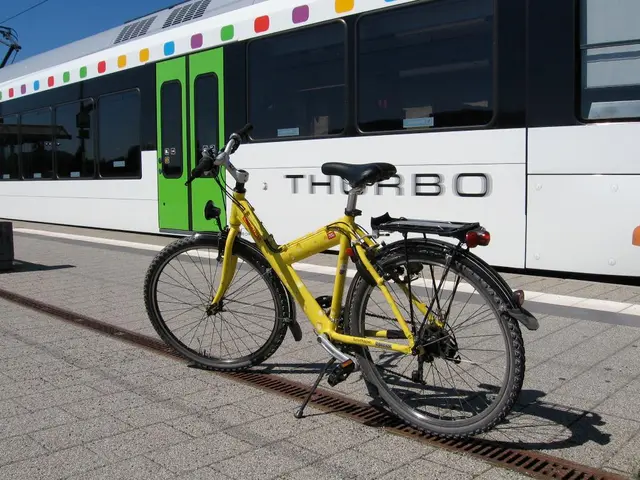Can Germany's federal election determine the future of the nation's energy transition plan?
The energy transition in Germany, a country with a population of over 80 million and a GDP of €4.5 trillion, is facing significant hurdles due to political divisions and economic challenges. According to Michael Field, chief equity strategist at Morningstar, a collective supportive policy for electric car adoption is crucial for reviving the automotive sector and restoring the German economy.
Political divisions and regulatory uncertainty are impacting the pace and stability of the energy transition. Recent government actions, such as the reassessment of energy transition goals focusing on cost-efficiency and energy security, have raised concerns among climate groups and industry experts that these measures might slow renewables expansion or alter expansion targets. Political ambiguity and a lack of clear, stable policies contribute to uncertainty for business planning and investment decisions.
Economic and infrastructure challenges are also hindering the energy transition. Renewables output has declined notably in 2025, with wind power down 31% partly due to weather factors, exposing vulnerabilities in energy supply and system stability. Grid infrastructure lags behind renewable generation growth, particularly in transmitting electricity from wind-rich northern Germany to industrial southern regions, creating significant bottlenecks. Germany requires about 14,000 km of new power lines to keep pace with its renewable targets, but regulatory and planning delays have hindered timely grid expansion.
Systemic and market risks further complicate the energy transition landscape. There have been regulatory probes into market manipulation, and geopolitical risks related to mineral imports for renewable technology add cost and supply chain vulnerabilities. The tension between climate goals and short-term energy security has led to a temporary rebound in fossil fuel usage.
The ambitious target of covering up to 80% of electricity consumption with renewables by 2030 and full renewable supply by 2035 requires substantial investment and political commitment. However, delays due to bureaucratic hurdles, lack of investment security, and skilled labor shortages pose material risks for realizing these goals.
For long-term investors, this dynamic demands a focus on adaptability, resilience, and strategic risk management given the evolving regulatory and market environment. A need for adaptability and foresight is essential as the energy transition is at a "crossroads." Investors must navigate a complex environment of regulatory shifts, market volatility, and geopolitical risks.
Investments in grid expansion, renewable infrastructure, green hydrogen, and battery storage solutions will be critical, as these are key to overcoming current bottlenecks and ensuring system reliability. A cautious approach to risk management is also necessary, as market manipulation probes and changing policy frameworks mean investors face heightened systemic risks and must conduct thorough due diligence and scenario planning relating to regulatory developments and energy market dynamics.
Despite headwinds, Germany remains committed legally and politically to a net-zero economy by 2045, reflecting sustained long-term demand for clean energy solutions. Clear communication of goals and improving investment certainty, as recommended by the IEA, will be essential to attract the capital needed.
In conclusion, Germany's energy transition is challenged by political fragmentation, economic bottlenecks, and market risks, which complicate progress but also create opportunities. Long-term investors should prioritize flexibility, infrastructure investments, and risk mitigation strategies to align with Germany’s ambitious climate and energy goals while managing near-term challenges.
- The growing interest in electric cars and renewable energy technology, key components of a sustainable lifestyle, is met with political uncertainty, leading to slow progress and concerns over potential regulation changes that might alter expansion targets.
- Amidst the challenges of weather-related declines in renewables output and grid infrastructure lags, sports like Formula E showcase the potential of electric vehicle technology in sports and technology sectors, offering glimpses of how they could contribute to the energy transition and improve overall weather resilience in Germany.




